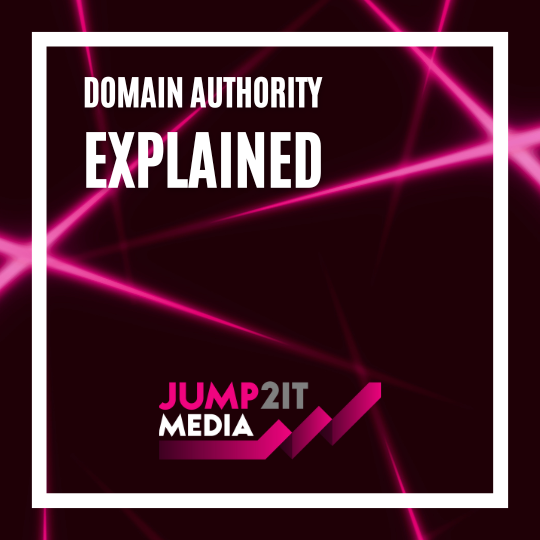Understanding Domain Authority (DA) is pivotal for digital marketers, webmasters, and content creators aiming to improve their website’s visibility within search engine results pages (SERPs), but what is it exactly?
In this article, we explain what domain authority is, how it is used in the SEO industry, and the importance of achieving the best DA score possible.
What is Domain Authority?
Domain Authority is a metric, developed to gauge the potential ranking power of a website or domain in search engine results. It’s a predictive measure, often represented on a scale from 1 to 100, with higher scores indicating a greater ability to rank.
Domain Authority is not a metric used by search engines to determine search rankings; instead, it is used by search engine optimisation professionals as a comparative tool. Originally coined by Moz, the term has been broadly adopted across various SEO tools, each incorporating its unique algorithm to analyse and predict a website’s ranking prowess. This metric synthesises a variety of factors, including linking root domains, number of total links, content quality, website structure, and more, into a single, comprehensive score. The primary aim is to provide a comparative tool to assess the ranking potential of websites over time or against competing sites.

Looking to improve your SEO rankings on Google? Click here to learn more about our SEO services.
The concept of Domain Authority underscores the competitive nature of SEO. However, it’s crucial to note that different website optimisation tools—such as Ahrefs, SEMRush, and Moz—utilise distinct algorithms when analysing Domain Authority, leading to variations in DA scores across these platforms. Each tool has developed its proprietary methodology for calculating DA, drawing on unique datasets and factors. For example, Ahrefs uses its Domain Rating (DR) metric, SEMRush employs Authority Score, and Moz sticks with Domain Authority.
Despite the similar aim of gauging a website’s ranking potential, the discrepancies in methodologies mean that DA results can differ significantly from tool to tool. This variation doesn’t imply inaccuracy but rather highlights the diversity in how SEO tools perceive and evaluate the complex web of factors influencing a website’s ability to rank in search engines.
Given this context, when comparing the Domain Authority of your website with competitors or tracking progress over time, it’s advisable to use the same tool consistently for a more accurate comparative analysis. Switching between different tools may provide varied perspectives but can lead to confusion due to the differing scales and metrics used.
How to Improve Domain Authority Score
To improve your domain authority score across the various analysis tools, we recommend:
Quality Link Building
- Focus on High-quality Backlinks: Acquire backlinks from reputable, high-DA websites relevant to your niche. These are seen as votes of confidence by search engines.
- Diversify Link Sources: Aim for links from a wide range of sites rather than multiple links from a few sites to show broad endorsement of your content.
- Avoid Toxic Links: Regularly audit your link profile to identify and disavow links from low-quality or spammy sites that can negatively impact your DA.
For more information on link building, take a closer look at our link building do’s and don’ts.
Content is King
- Publish High-quality Content: Create informative, engaging, and original content that provides real value to your audience. High-quality content is more likely to attract organic backlinks.
- Regular Updates: Keep your site fresh with regular content updates. This encourages repeat visits and increases the likelihood of visitors sharing your content.
Final Thoughts
Domain Authority is a vital metric for anyone involved in search engine optimisation, offering insights into a website’s potential to rank well in SERPs. However, it’s essential to understand how different SEO tools calculate this metric. By acknowledging these differences and sticking to a single tool for comparative analysis, digital marketers can more effectively strategise their SEO efforts, aiming to improve visibility and drive traffic to their sites.





